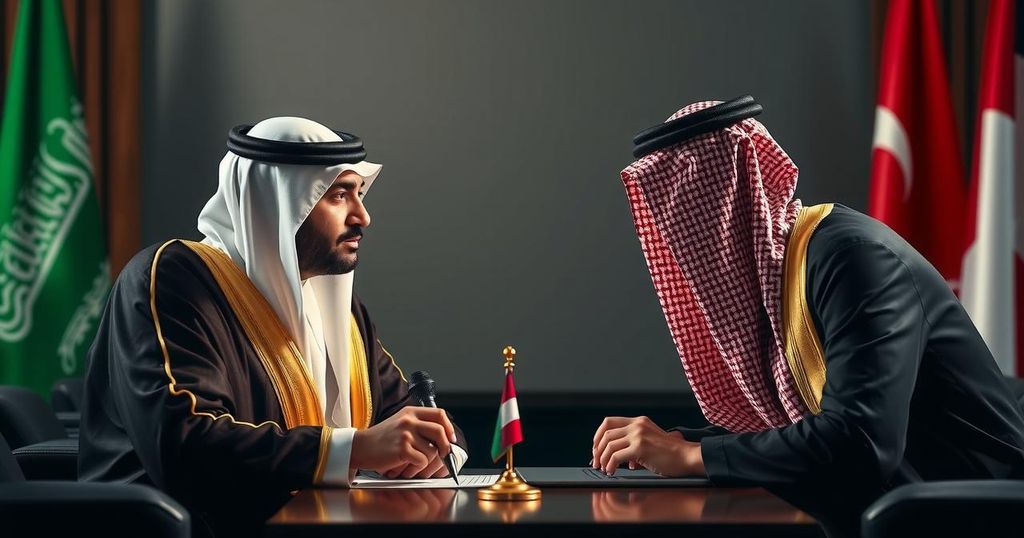UAE President Sheikh Mohamed bin Zayed and Qatari Prime Minister Sheikh Mohammed bin Abdulrahman discussed the need for a cease-fire and de-escalation in the Middle East during a meeting in Abu Dhabi. They highlighted the importance of their nations’ strong ties and cooperation in addressing regional stability and security amidst escalating tensions due to ongoing conflicts, notably in Gaza and Lebanon.
On Tuesday, Abu Dhabi hosted a significant meeting between United Arab Emirates (UAE) President Sheikh Mohamed bin Zayed Al Nahyan and Qatari Prime Minister Sheikh Mohammed bin Abdulrahman Al Thani. The dialogue focused on enhancing efforts towards establishing a cease-fire and promoting de-escalation in the Middle East. Both leaders emphasized the strong bilateral ties and cooperation that aim to foster mutual interests and bolster regional stability and security. Their discussions also covered various regional and international issues of common concern, highlighting their commitment to avert the extension of the ongoing conflicts that have affected the region’s peace.
The necessity for a cease-fire and de-escalation in the Middle East has become increasingly urgent in light of escalating regional tensions. Following a significant cross-border attack by Hamas in October of the previous year, Israel’s subsequent military operations in Gaza have resulted in a tragic loss of life, predominantly among women and children. These hostilities have also spilled over into Lebanon and involved Yemen, illustrating the complex interplay of regional politics and the urgent need for diplomatic intervention to restore peace and security.
The meeting between the UAE President and Qatari Prime Minister underscores a shared commitment to peace in a region marred by conflict. The leaders’ focus on strengthening cooperation and mutual interests is pivotal in addressing ongoing tensions. By prioritizing diplomatic solutions and emphasizing the importance of a cease-fire, both nations aim to contribute significantly to regional stability and the prevention of further escalation.
Original Source: www.aa.com.tr






